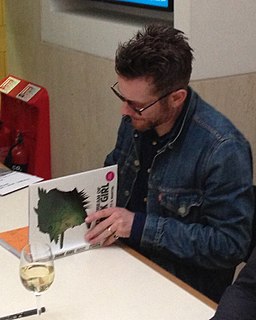A Quote by Simon Pegg
The trouble with improv is that it is often about being funny in the moment without any real consideration for the bigger picture.
Quote Topics
Related Quotes
I think real humans are so complicated, and often [characters] are written more one-dimensional without maybe even the writer knowing it. I've felt numerous moments in my life where my most confident moment and my most insecure moment were exactly the same time. There's nothing funny or interesting about perfection.
I think with improv - and I say it all the time because it's become such a catch thing that you talk about improv - if the scene is well-written, you don't need to improv. But that being said, if something strikes you in the moment and, most importantly, you know where the scene is supposed to go, it's no different than method acting.
I love performing. I love doing improv. It's a totally terrifying experience, but it's something that I've always felt so strongly about and that I'm kind of obsessed with. And just as an actor, it's a great exercise. It's a great playground, you know, to try things out and to work on your skills. Because the mandate of improv is kind of the same as acting: It's all about your scene partner, it's all about being present and in the moment and exploring together as a team, a collaboration.
It’s about reaching that moment of pure ecstasy when a drawing just happens. Where every move you make with your hand and every thought you have in your head grows in front of you without any mistakes; no rubbing out, starting again and getting frustrated. It’s like being in a trance - it’s a fluid - and you almost don’t remember doing the picture. Drawing is an escape from all the unnecessary things in life that get in the way of being free.
The vital consideration of incentives is almost systematically overlooked in the proposals of agitators for more and bigger government welfare schemes. We should all be concerned about the plight of the poor and unfortunate. But the hard two-part question that any plan for relieving poverty must answer is: How can we mitigate the penalties of failure and misfortune without undermining the incentives to effort and success.
There's different kinds of improv. There's Second City improv where you try to slowly build a nice sketch. There's stuff you do in college coffee houses where you just go joke, joke, joke. Bring another funny character with a funny hat on his head. Christopher Guest is more the line of trying to get a story out.


































